Olivier Giroud (Part 1)
Olivier Giroud (Part 1)
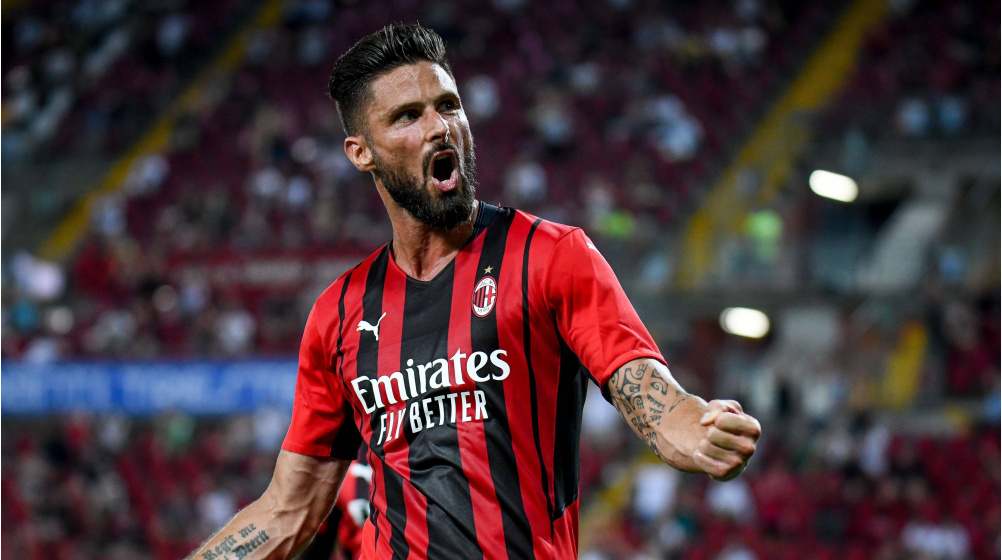
Olivier Jonathan Giroud, born on 30 September 1986, stands as a distinguished French professional footballer renowned for his prowess as a striker, currently plying his trade for Serie A giants AC Milan, while also representing the esteemed France national team. Notably, Giroud holds the esteemed title of France's all-time highest goalscorer, a testament to his prolific contributions on the international stage.
Giroud's journey in senior club football commenced with his hometown club Grenoble, before embarking on a fruitful stint with Tours in 2008, where he earned recognition as the Ligue 2 Player of the Year in 2010, clinching the league's top goalscorer accolade. His ascendancy continued with a historic move to Montpellier in a then-club record transfer worth €2 million, culminating in the club's maiden Ligue 1 title triumph in 2012, with Giroud emerging as the league's leading goalscorer.
A new chapter unfolded for Giroud upon his arrival at Arsenal, where he played an instrumental role in securing three FA Cups, thereby contributing significantly to the club's resurgence and bringing an end to their nine-year trophy drought. His notable achievements at Arsenal solidified his legacy as the club's eighteenth-highest all-time goalscorer.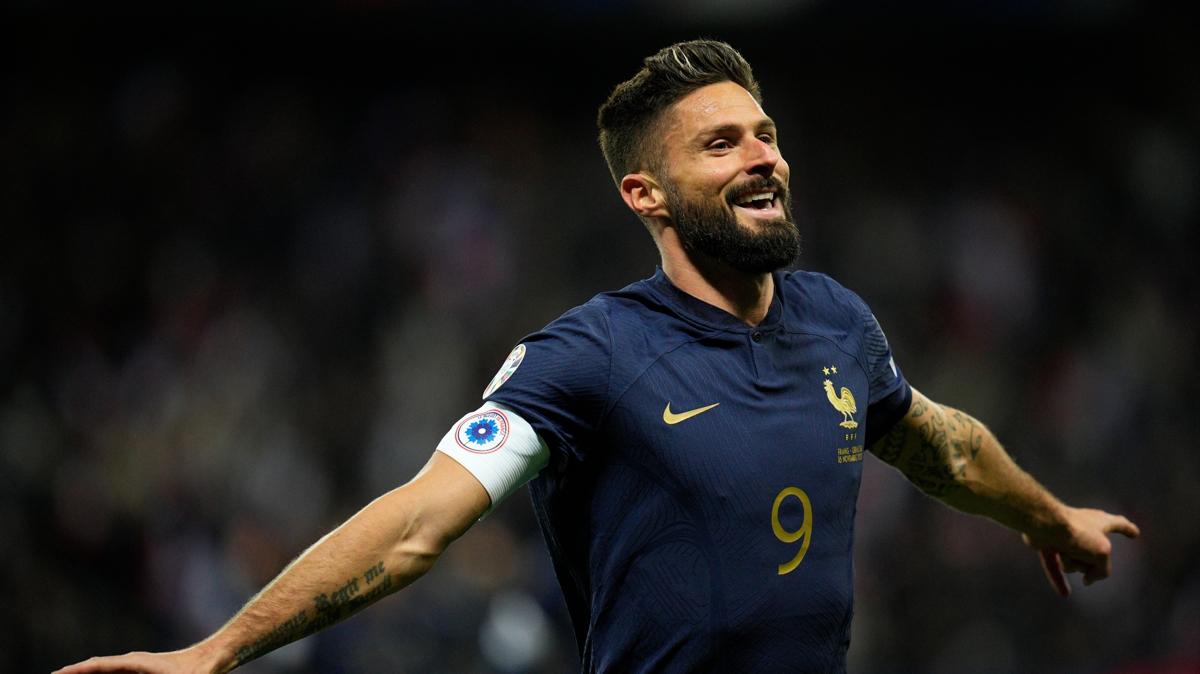
Giroud made a high-profile switch to crosstown rivals Chelsea in a notable transfer valued at 18 million , subsequently adding to his trophy cabinet with successes in the FA Cup, UEFA Champions League, and UEFA Europa League, notably finishing as the top goalscorer in the latter during the 2019 campaign.
Continuing his illustrious career trajectory, Giroud embarked on a new adventure with AC Milan in 2021, playing an instrumental role in their triumphant 2021–22 Serie A campaign, which marked the culmination of the club's 11-year league title drought.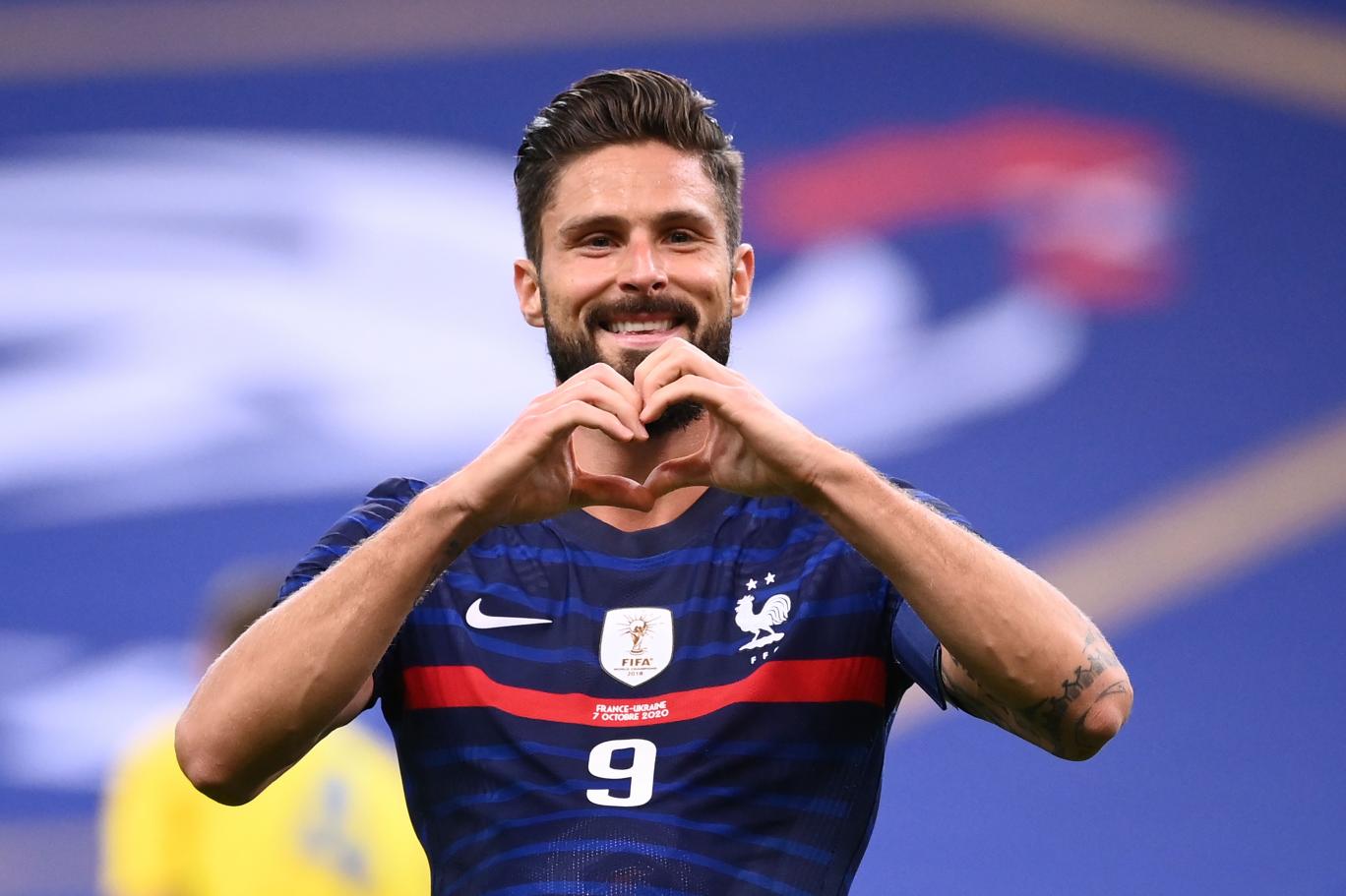
On the international stage, Giroud made his senior debut for France in 2011, embarking on a journey that has seen him amass over 130 caps for Les Bleus. His stellar contributions have been highlighted by appearances in six major tournaments, including memorable triumphs at the 2018 FIFA World Cup, where France emerged victorious, and notable performances at UEFA Euro 2016 and UEFA Euro 2020, where he clinched the Bronze Boot as joint second-highest goalscorer. Additionally, Giroud played a pivotal role in France's runner-up finish at the 2022 FIFA World Cup, once again receiving the Bronze Boot for his commendable goal-scoring exploits. Throughout his illustrious career, Giroud's indomitable spirit and clinical finishing have established him as a revered figure within the realm of French football, leaving an indelible mark on the sport's rich tapestry.
Olivier Jonathan Giroud hails from Chambéry in the picturesque Rhône-Alpes region of France, where he spent his formative years in the tranquil village of Froges, nestled close to Grenoble. Remarkably, Giroud's lineage is enriched by his Italian heritage, inherited through both of his grandmothers, Yvonne Avogadro and Antonia Gaiatto, imbuing his identity with a rich cultural tapestry.
Beyond the realm of football, Giroud pursued academic endeavors, achieving his baccalaureate in economics and social sciences (ES) before delving into a second year of studies in science and techniques of physical and sports activities (STAPS) at Joseph Fourier University in Grenoble, a testament to his multifaceted interests and dedication to personal growth.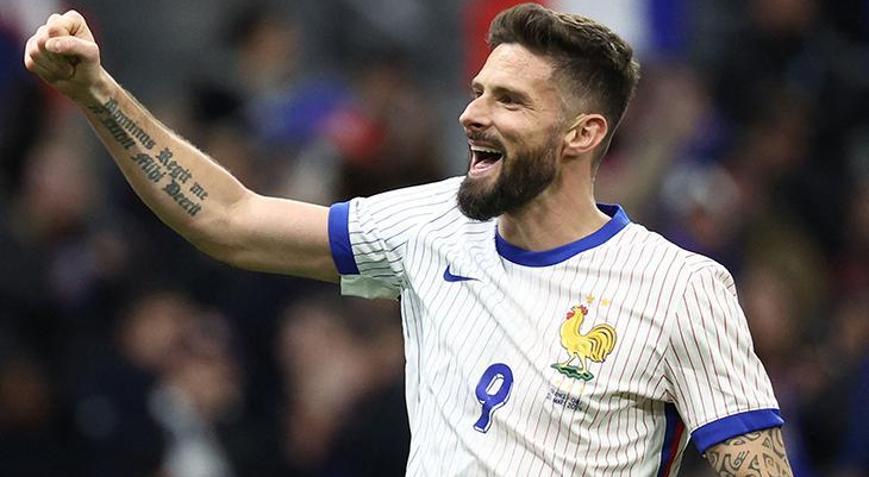
Giroud's footballing journey commenced at the grassroots level, with Olympique Club de Froges serving as the nurturing ground for his burgeoning talent. Spending six formative years honing his skills at the local club, Giroud's prodigious talent soon caught the attention of professional outfit Grenoble, prompting his transition to the professional ranks at the tender age of 13. This early immersion in organized football laid the foundation for Giroud's remarkable ascent in the sport, showcasing his unwavering commitment and innate talent from an early age.
Giroud's journey to professional football took root during his five-year tenure within Grenoble's esteemed youth academy, a period marked by diligent development and unwavering determination. It wasn't until the age of 21 that he inked his maiden professional contract, a pivotal moment that catalyzed his realization of his inherent talents. Reflecting on this milestone, Giroud acknowledged the significance of the club's trust in him, recognizing it as a validation of his capabilities and potential.
As the 2005–06 season dawned, Giroud's ascent continued unabated as he earned promotion to Grenoble's reserve team, competing in the Championnat de France Amateur 2, the fifth tier of French football. Undeterred by the challenges, Giroud swiftly asserted his presence, notching an impressive tally of 15 goals in just 15 appearances for the reserves. Such stellar performances caught the eye of senior team manager Thierry Goudet, who swiftly summoned Giroud to the first-team fold in March 2006..jpg?auto=webp&format=pjpg&width=3840&quality=60)
Giroud's professional debut ensued on 27 March, where he made a cameo appearance as a substitute in a hard-fought 1–1 draw against Gueugnon in Ligue 2. Undeterred by the step up in competition, Giroud embraced the challenge, earning further opportunities with five more substitute appearances by season's end.
With the dawn of the 2006–07 campaign, Giroud's ascent continued under the stewardship of new manager Payton Pouliquen and Nicola Malgeri, securing a permanent berth in the senior squad. Assigned the revered number 22 shirt, Giroud marked his first professional start with a full 90-minute performance in a narrow 2–1 defeat against Niort. His breakthrough moment arrived on 26 February 2007, as he etched his name in Grenoble's history books with a dramatic injury-time winner against Le Havre, a cherished memory for the budding striker.
Despite encountering the occasional setback, such as receiving his first professional red card in a goalless draw against Gueugnon, Giroud's debut campaign concluded on a positive note, tallying 18 appearances and two goals as Grenoble secured a commendable fifth-place finish. This formative season laid the groundwork for Giroud's burgeoning career, showcasing his resilience, talent, and potential to thrive at the professional level.
In a bid to secure valuable playing time and further his development, Giroud embarked on a loan spell during the 2007–08 season, joining Istres in the Championnat National, the third tier of French football. Under the guidance of manager Frédéric Arpinon, Giroud embraced the challenge, showcasing his burgeoning talent as a striker.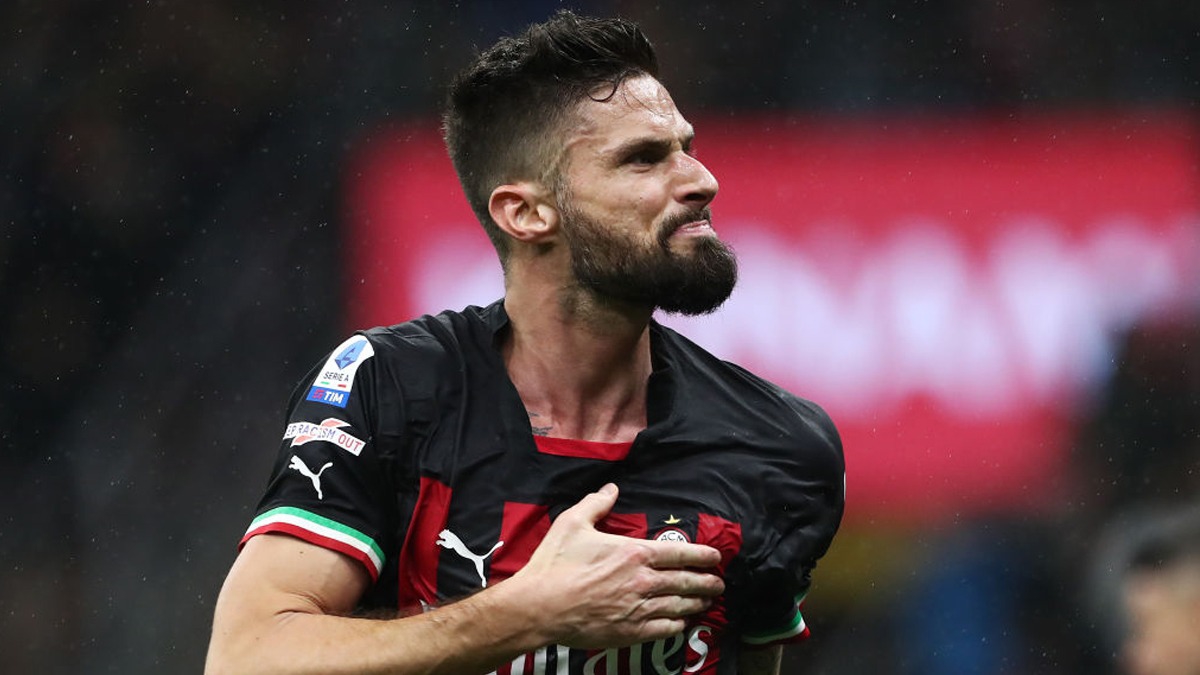
Giroud wasted little time in leaving his mark, netting his debut goal in just his second match for Istres, contributing to a crucial 2–1 victory over Laval. This milestone served as a catalyst for Giroud, as he proceeded to display his scoring prowess with goals in consecutive matches against Vannes and Créteil. Demonstrating his consistency, Giroud notched his first double of the season in a commanding 2–0 triumph over Arles-Avignon.
The striker's scoring exploits continued unabated, with Giroud once again bagging a brace in a hard-fought 3–2 win against Pau. Although he endured a brief dry spell in November and December, Giroud quickly rediscovered his form in January, adding to his goal tally with strikes against Vannes and Beauvais.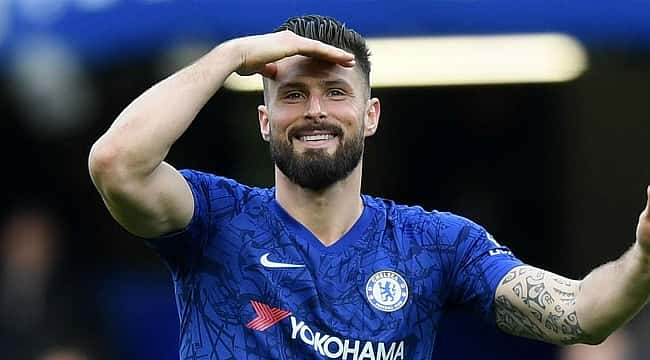
References
- "UEFA Champions League 2021/2022: Booking List before Group stage Matchday 5" (PDF). UEFA. 17 November 2021. p. 2. Archived (PDF) from the original on 9 March 2022. Retrieved 26 November 2021.
- ^ "FIFA World Cup Russia 2018: List of Players: France" (PDF). FIFA. 15 July 2018. p. 11. Archived from the original (PDF) on 11 June 2019.
- ^ "Olivier Giroud". Chelsea F.C. Archived from the original on 5 October 2018. Retrieved 5 October 2018.
- a b "Interview Olivier Giroud avant RC Strasbourg – Tours FC". Tours FC (in French). 27 October 2009. Archived from the original on 7 November 2012. Retrieved 5 February 2012.
- ^ Systems, eZ. "Aux origines de Payet, Giroud et Griezmann". La revue française de Généalogie. Archived from the original on 18 February 2018. Retrieved 30 March 2018.
- ^ "Giroud, la Marseillaise et sa mamie". SOFOOT.com. 10 June 2016. Archived from the original on 31 March 2018. Retrieved 30 March 2018.
- ^ "Espace de Recueillement de Madame Yvonne GIROUD". www.libramemoria.com (in French). Archived from the original on 11 January 2023. Retrieved 18 January 2023.
- ^ Paul Marion (15 June 2018). "Coupe du monde: les diplômes des joueurs de l'équipe de France". Les Échos (in French). Archived from the original on 23 November 2022. Retrieved 23 November 2022.
- ^ Amaury Bucco (30 June 2018). "Les six meilleurs CV des joueurs de l'équipe de France de football". Le Figaro (in French). Archived from the original on 23 November 2022. Retrieved 23 November 2022.
- a b c d e f g "Olivier Giroud, buteur né". Le Monde (in French). 30 October 2011. Archived from the original on 2 January 2012. Retrieved 5 February 2012.
- ^ "Gueugnon v. Grenoble Match Report". Ligue de Football Professionnel (in French). 24 March 2006. Archived from the original on 4 October 2013. Retrieved 5 February 2012.
















































